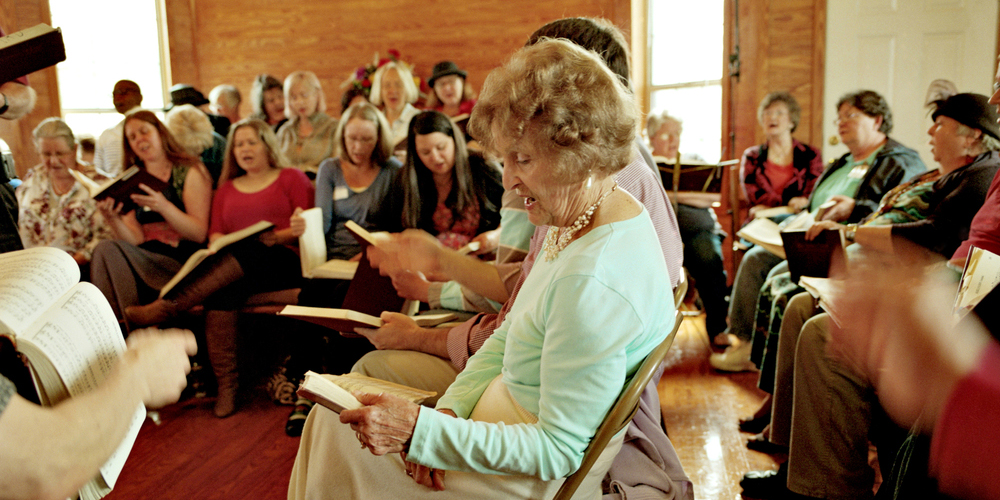No one could have predicted that a strange and primitive form of gospel music would become one of the South’s most potent cultural exports.
Sacred Harp singing emerged from deep in the annals of Southern history. It was designed so untrained church-goers could sing by sight from hymnals, and it produced an otherworldly, earth-shakingly loud brand of music.
To folks who grew up in the tradition, Sacred Harp means religion. There are others who view it as “acapella heavy metal.” Both groups hear something divine in the music.
Myke Johns and The Bitter Southerner’s Chuck Reese spent a day at the 2015 Georgia State Sacred Harp Singing Convention. They found that what may seem like an arcane corner of Southern musical tradition has managed to bring together people of all ages, races, creeds and nationalities.

9(MDAxODM0MDY4MDEyMTY4NDA3MzI3YjkzMw004))







